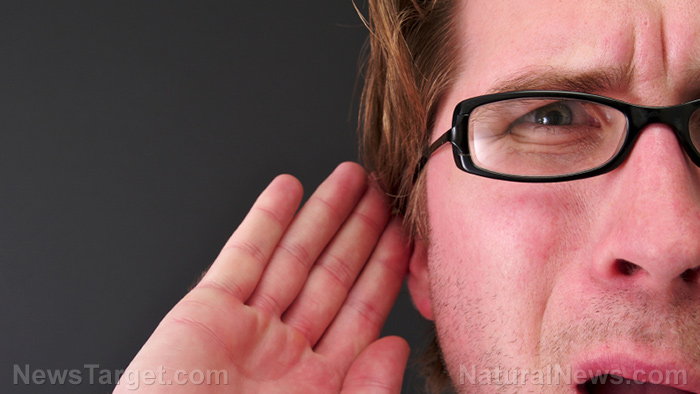Encouraging children to spend more time playing outdoors may help them reduce the risk of developing various eye conditions such as nearsightedness or myopia, optometry experts told the Daily Mail online.
Professors Karla Zadnik and Don Mutti of Ohio State University’s College of Optometry argued that easy access to technology — such as computers, video games, and smartphones — may negatively impact eye development among young patients. The experts stressed that the availability of these technologies and the hours spent on screen time raise the odds of developing myopia. However, this risk can be mitigated by spending more time outside and getting enough sunlight exposure. (Related: Correct poor eyesight naturally with these tips.)
The professors cited data from the Collaborative Longitudinal Evaluation of Ethnicity and Refractive Error study and noted that children whose parents both suffered from myopia had a 60 percent increased risk of requiring eyeglasses. However, the experts said children who spent as much as 14 hours per week playing outside may reduce the risk by up to 20 percent.
Past studies support link between outdoor recreation, better eyesight
The experts’ assertions coincide with previous studies that demonstrated the beneficial effects of playing outside.
Data on 235 Danish school children with myopia revealed that those who had greater sunlight exposure had shorter axial eye length at 0.12 mm, compared with those who had the lowest exposure at 0.19 mm. Axial eye length is an important marker in myopia as greater elongation signifies worsening condition for patients.
“Our results indicate that exposure to daylight helps protect children from myopia. Parents should encourage [children] to spend time outdoors daily. When that’s impractical due to weather or other factors, use of daylight-spectrum indoor lights should be considered as a way to minimize myopia,” lead researcher Dongmei Cui said in another Daily Mail article.
In another review, a team of researchers at the University of Cambridge examined eight studies with a total cohort population of 10,400 children and adolescents and found that each additional hour spent outdoors per week may reduce the risk of developing myopia by up to two percent.
“Increasing children’s outdoor time could be a simple and cost-effective measure with important benefits for their vision and general health. If we want to make clear recommendations, however, we’ll need more precise data. Future, prospective studies will help us understand which factors, such as increased use of distance vision, reduced use of near vision, natural ultra violet light exposure or physical activity, are most important,” a press release read.
The findings were presented at the annual Meeting of the American Academy of Ophthalmology.
In yet another study, Chinese researchers further demonstrated that prolonged exposure to sunlight may well improve eye health in younger patients.
The research team enrolled 1,900 schoolchildren in order to carry out the study. The children were then divided into two groups: one was instructed to spend more time outdoors, while the other group did not receive a similar instruction.
The results showed that children who spent more time outdoors had a 23 percent reduced risk of developing myopia over a three-year study period compared with the controls. The researchers also found that among those who eventually developed myopia, those who spent more time outdoors fared slightly better than those who did not.
“Given the popular appeal of increased outdoor activities to improve the health of school-aged children in general, the potential benefit of slowing myopia development and progression by those same activities is difficult to ignore,” outside expert Dr. Michael X. Repka told Live Science online.
Read more news like this one on Research.news.
Sources include:
DailyMail.co.uk 1
DailyMail.co.uk 2
HuffingtonPost.com
LiveScience.com





















